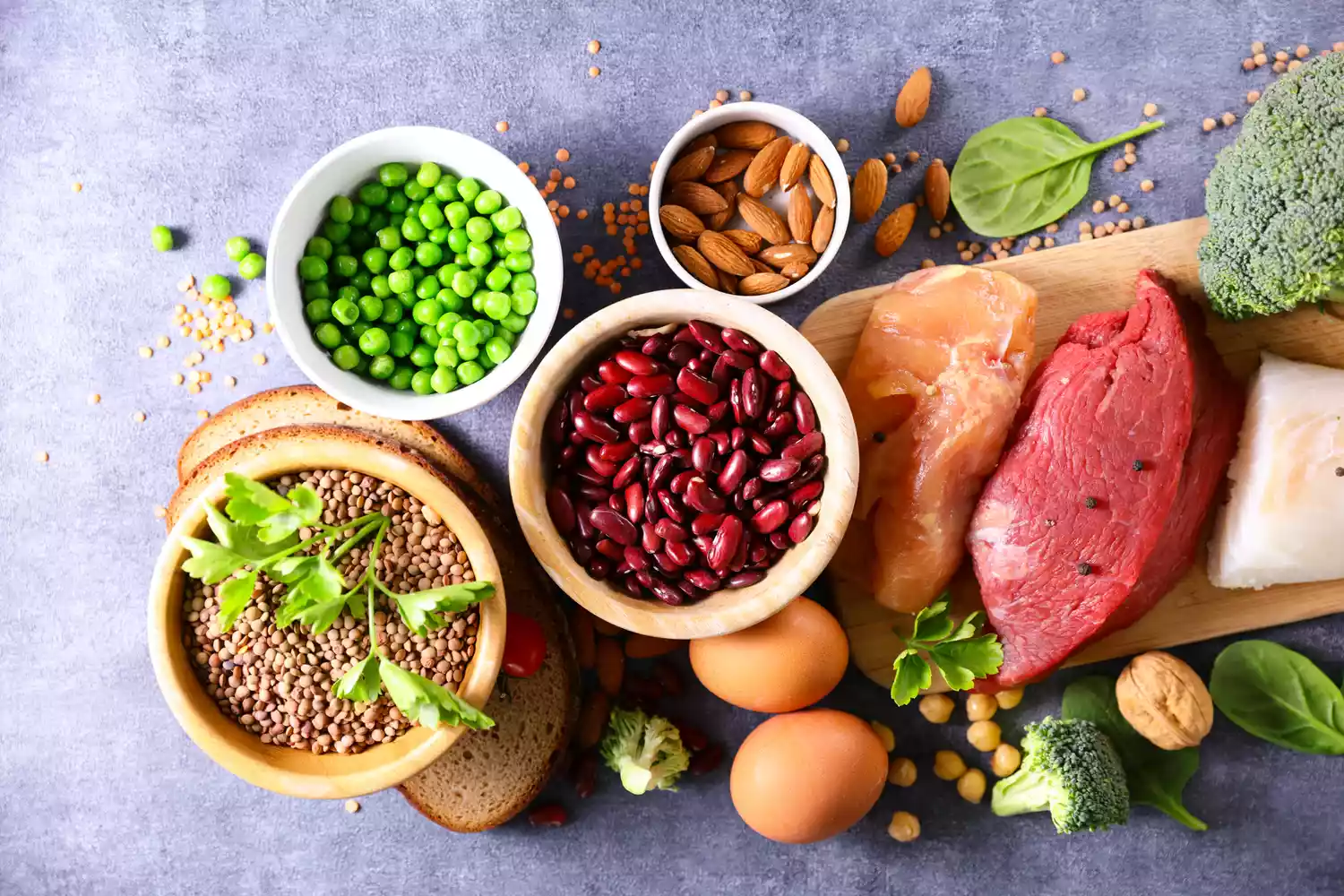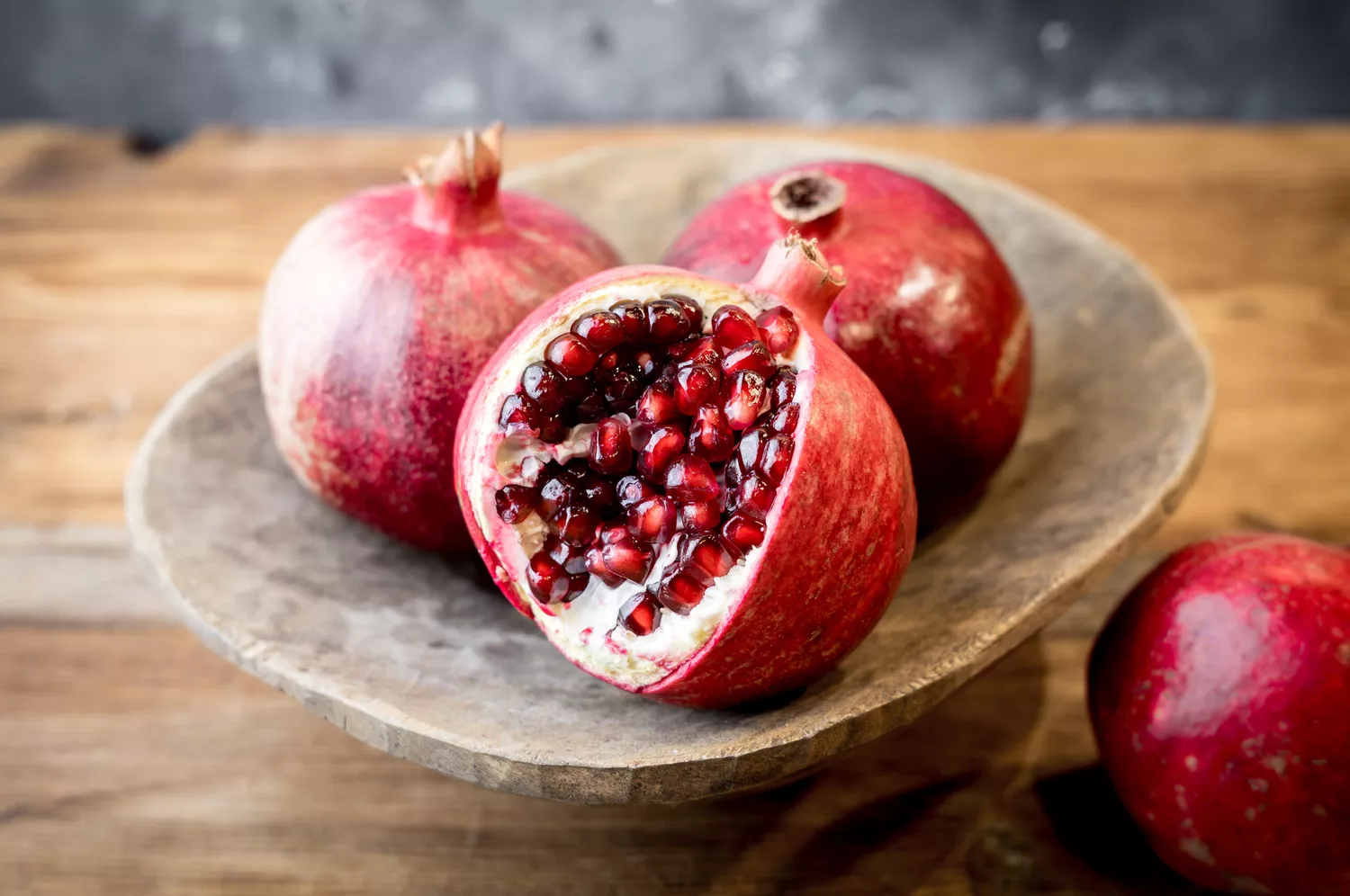Healthy protein is a macronutrient, implying you require to consume it on a regular basis in large quantities. Protein is essential permanently as it gives the amino acids your body needs for important procedures like immune feature, muscle building, and generating hormones and neurotransmitters.12.
Healthy protein is concentrated in both plant and pet foods, such as eggs, fish, and beans.
Ample protein consumption is important to health and wellness. Research studies show that high-protein diet plans can sustain and safeguard health in several ways, such as improving body make-up, reducing the danger of bone conditions, and extra.34.
Types of Healthy protein.
Healthy protein is located in both plant and pet foods. Nevertheless, there are a few essential differences between the protein kinds. For instance, animal healthy proteins are taken into consideration full healthy proteins, while a lot of plant healthy proteins are insufficient.
Animal Proteins.
Animal proteins, like eggs, yogurt, and fish, are categorized as total proteins because they include all 9 crucial amino acids.1 Your body needs 20 amino acids to work, but only nine are classified as essential.1.
Histidine, isoleucine, leucine, lysine, methionine, phenylalanine, threonine, tryptophan, and valine are considered important because your body can’t create them on its own. Your body can synthesize non-essential amino acids by using other amino acids.1.
Due to its amino acid account, animal healthy protein is considered above plant-based protein. What’s even more, pet foods load a lot more healthy protein than plant foods. Though there are some exceptions, animal healthy proteins normally give a lot more protein gram for gram.5.
Plant-Based Proteins.
A lot of plant-based healthy proteins are insufficient proteins due to the fact that they’re missing or reduced in several vital amino acids. Plant-based healthy proteins also have reduced muscle-building capacity than animal proteins. This is because they have lower digestibility and are reduced or deficient in essential amino acids that are important for protein synthesis and muscular tissue repair, like leucine.5.
Because of this, animal-based healthy proteins are typically taken into consideration superior to plant-based healthy proteins. It’s normally less complicated to satisfy your healthy protein needs when complying with an omnivorous diet plan. Nevertheless, it’s entirely possible to meet your protein requires, build muscle, and reach your health objectives while following a plant-based diet plan.
In the past, professionals believed plant-based proteins required to be matched together to make a total healthy protein, yet more current research studies reveal healthy protein pairing isn’t required as long as you’re complying with a balanced diet. This is because your body has an amino acid swimming pool that it pulls from to construct new healthy protein and carry out other crucial processes.6.
Individuals who intend to consume only plant-based proteins need to include a range of healthy proteins in their everyday diet plans to cover their amino acid needs.7.
Possible Benefits of Healthy Protein.
Protein is essential to health. The body needs amino acids– the building blocks of protein– for crucial processes such as hormone and natural chemical synthesis, immune function, and extra.
Higher-protein diet plans have been connected to numerous health and wellness advantages, including weight management, enhanced bone density and body composition, and better blood sugar level guideline.
Needed for Bone and Muscular Tissue Wellness.
Proteins comprise 80{0b029884226bf181d7dbb01df59f2ff24db55360df081b8ac2080ee728e3010f} of muscular tissue mass, and maintaining ideal healthy protein is necessary for muscular tissue health and wellness.8.
Your body calls for a steady supply of amino acids to grow and fix muscle. Research studies show that following a high-protein diet regimen is beneficial for sustaining muscular tissue growth.9.
High-protein diet plans are specifically efficient for promoting muscle mass growth when coupled with resistance training. Keeping optimal protein intake can decrease exercise-induced skeletal damage and boost muscle mass toughness.10.
Protein is additionally essential for bone wellness. Following a high-protein diet can protect versus fractures and osteoporosis (bone thinning and weakening).3.
Crucial for Lots Of Necessary Body Procedures.
Healthy protein is required for immune function, the synthesis of neurotransmitters, skin and hair health, hormone manufacturing, and numerous various other essential processes within the body.
Diets too low in protein can adversely influence total wellness and make you a lot more prone to getting ill. For example, ample protein consumption is required to build antibodies and leukocyte, which battle infections and shield you from hazardous substances.11.
Protein is crucial for brain feature and the production of mood-regulating natural chemicals like dopamine and serotonin. Amino acids, such as tyrosine, are called for to create these and various other natural chemicals, making optimal protein intake necessary for preserving psychological health and wellness.12.
Ideal protein intake can help shield against age-related cognitive decline. Reduced healthy protein intake is connected to mental deterioration in older adults.13.
Regulates Hunger and Blood Glucose.
Protein slows food digestion and the absorption of glucose right into your bloodstream. This assists you really feel full after eating and supports optimal blood sugar guideline.14.
Healthy protein also boosts the launch of satiation hormones such as glucagon-like peptide 1 (GLP-1), cholecystokinin (CCK), and peptide YY (PYY degrees), and lowers degrees of an appetite-increasing hormone called ghrelin.15.
This is why high-protein diet regimens are commonly connected to improved weight loss and far better glycemic control.
Just how much Do You Required?
Your daily protein needs depend on your body size, health and wellness goals, and much more.
The Recommended Dietary Allowance (RDA) for healthy protein is currently evaluated 0.8 grams per kg (g/kg) of body weight, or 0.36 grams of protein per extra pound (g/lb). However, this isn’t the optimal healthy protein consumption you should aim for. The RDA is just the minimum quantity of protein needed to satisfy the body’s amino acid demands and stop wellness problems like muscular tissue loss.16.
Though the RDA might be ideal for sedentary people, research recommends that physically energetic people need much more protein for optimal health. People that regularly work out need to consume between 1.2-2.0 g/kg of healthy protein daily (0.54-0.9 g/lb) to preserve their muscular tissue mass.16.
If you’re attempting to obtain muscular tissue or shed body fat while keeping your muscle mass, your protein demands might go beyond 2.0 g/kg daily (0.9 g/lb).17 Individuals attempting to slim down while gaining or maintaining muscle mass have actually approximated healthy protein needs between 2.3-3.1 g/kg (1-1.4 g/lb) everyday.18.
Pregnancy, injuries, and acute and chronic disease also substantially raise your healthy protein needs.19.
Good Sources of Protein.
There are many protein-rich foods to choose from, including from plant and animal resources.
Animal Proteins.
Most meats and animal items offer a good source of protein. Some of these include:.
Chicken breast: 31 g per tiny skinless hen breast, or 62{0b029884226bf181d7dbb01df59f2ff24db55360df081b8ac2080ee728e3010f} of the Daily Worth (DV) 20.
Whey protein isolate: 25 g per ounce (oz), or 50{0b029884226bf181d7dbb01df59f2ff24db55360df081b8ac2080ee728e3010f} of the DV21.
Cottage cheese: 23.5 g per mug, or 47{0b029884226bf181d7dbb01df59f2ff24db55360df081b8ac2080ee728e3010f} of the DV22.
Shrimp: 20.4 g per 3-oz offering, or 41{0b029884226bf181d7dbb01df59f2ff24db55360df081b8ac2080ee728e3010f} of the DV23.
Tinned tuna: 20.1 g per 3-oz serving, or 40{0b029884226bf181d7dbb01df59f2ff24db55360df081b8ac2080ee728e3010f} of the DV24.
Greek yogurt: 19.9 g per 7-oz serving, or 40{0b029884226bf181d7dbb01df59f2ff24db55360df081b8ac2080ee728e3010f} of the DV25.
Canned salmon: 19.6 g per 3-oz offering, or 39{0b029884226bf181d7dbb01df59f2ff24db55360df081b8ac2080ee728e3010f} of the DV26.
Eggs: 6.28 g per huge egg, or 13{0b029884226bf181d7dbb01df59f2ff24db55360df081b8ac2080ee728e3010f} of the DV27.
Plant-Based Healthy proteins.
Legumes, like beans, lentils, and peanuts, are excellent sources of plant-based protein. Soybean-based products, like tofu and tempeh, likewise offer very easy plant protein. Examples consist of:.

Pea protein: 24 g per oz, or 48{0b029884226bf181d7dbb01df59f2ff24db55360df081b8ac2080ee728e3010f} of the DV28.
Tempeh: 19.9 g per 100-g offering, or 40{0b029884226bf181d7dbb01df59f2ff24db55360df081b8ac2080ee728e3010f} of the DV29.
Edamame: 18.5 g per mug, or 37{0b029884226bf181d7dbb01df59f2ff24db55360df081b8ac2080ee728e3010f} of the DV30.
Lentils: 17.9 g per cup, or 36{0b029884226bf181d7dbb01df59f2ff24db55360df081b8ac2080ee728e3010f} of the DV31.
Hemp seeds: 9.48 g per oz, or 19{0b029884226bf181d7dbb01df59f2ff24db55360df081b8ac2080ee728e3010f} of the DV32.
Tofu: 8.67 g per 3-oz offering, or 17{0b029884226bf181d7dbb01df59f2ff24db55360df081b8ac2080ee728e3010f} of the DV33.
Peanuts: 7.43 g per oz, or 15{0b029884226bf181d7dbb01df59f2ff24db55360df081b8ac2080ee728e3010f} of the DV34.
Garbanzo beans: 14.5 g per cup, or 29{0b029884226bf181d7dbb01df59f2ff24db55360df081b8ac2080ee728e3010f} of the DV 35.
Supplements.
Many individuals additionally use dietary supplements to boost their healthy protein intake.
Healthy protein powders are one of the most popular sort of healthy protein supplement. They can increase the protein material of omnivorous and plant-based diet regimens. Though protein web content selections, the majority of protein powders offer more than 20 g of protein per 1-oz offering.2128.
Animal-based healthy protein powders consist of whey protein, egg white protein, casein, and collagen peptides.
Plant-based healthy protein powders consist of pea healthy protein, brown rice protein, hemp healthy protein, and soy protein.
Similar to all nutritional supplements, choosing top quality healthy protein powders that have actually been third-party examined for high quality and pureness whenever feasible is suggested.36.
Potential Dangers and Side Effects.
Study shows that high-protein diet plans are typically safe for most people, and there’s no evidence that diet regimens supplying more than the present RDA harm health and wellness.
Studies reveal that extremely high-protein diet plans, offering over 3 g/kg (1.36 g/lb) each day, are not associated with health and wellness problems or adverse side effects in healthy and balanced grownups.37.
Though high-protein diet regimens in general aren’t harmful, diets high in details type of high-protein foods, like refined and red meat, can increase disease. As an example, following a diet high in red and refined meat can raise your risk of creating colon cancer and heart problem.38.
High protein consumption might also accelerate kidney function decline in people with kidney illness.39 Speak to your healthcare provider concerning whether a high-protein diet is ideal for you.
Protein Deficiency.
Healthy protein deficiency is uncommon in the United States, yet it prevails in poverty-stricken areas such as India and Africa.
Kwashiorkor is an illness identified by extreme healthy protein deficiency that mostly influences malnourished babies and youngsters. It creates signs and symptoms such as muscle losing, stomach distension, liver swelling, and development problems.40.
Other populaces in jeopardy for healthy protein deficiency consist of individuals with advanced cancer cells and older adults.



